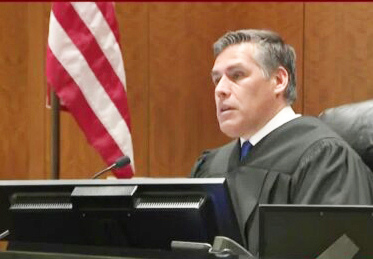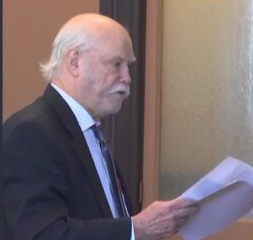Is an AI lawyer real?
A California attorney must pay a $10,000 fine for filing a state court appeal full of fake quotations generated by the artificial intelligence tool ChatGPT. The fine appears to be the largest issued over AI fabrications by a California court and came with a blistering opinion stating that 21 of 23 quotes from cases cited in the attorney’s opening brief were made up. It also noted that numerous out-of-state and federal courts have confronted attorneys for citing fake legal authority. “We therefore publish this opinion as a warning,” it continued. “Simply stated, no brief, pleading, motion, or any other paper filed in any court should contain any citations— whether provided by generative AI or any other source—that the attorney responsible for submitting the pleading has not personally read and verified.” The opinion, issued 10 days ago in California’s 2nd District Court of Appeal, is a clear example of why the state’s legal authorities are scrambling to regulate the use of AI in the judiciary.
The state’s Judicial Council two weeks ago issued guidelines requiring judges and court staff to either ban generative AI or adopt a generative AI use policy by Dec. 15. The Los Angeles-area attorney fined last week, Amir Mostafavi, told the court that he did not read text generated by the AI model before submitting the appeal in July 2023, months after OpenAI marketed ChatGPT as capable of passing the bar exam. A three-judge panel fined him for filing a frivolous appeal, violating court rules, citing fake cases, and wasting the court’s time and the taxpayers money, according to the opinion. Mostafavi told CalMatters he wrote the appeal and then used ChatGPT to try and improve it. He said that he didn’t know it would add case citations or make things up.
In a widely-publicized case in May, a U.S. district court judge ordered two law firms to pay $31,100 in fees to defense counsel and the court for costs associated with using “bogus AI-generated research.” In that ruling, the judge described feeling misled, said they almost cited fake material in a judicial order and said “Strong deterrence is needed to make sure that attorneys don’t succumb to this easy shortcut.” A New York federal judge on Thursday sanctioned lawyers who submitted a legal brief written by the artificial intelligence tool ChatGPT, which included citations of non-existent court opinions and fake quotes. The Judge said that the attorneys, “abandoned their responsibilities” when they submitted the A.I.-written brief in their client’s lawsuit against the Avianca airline in March, and “then continued to stand by the fake opinions after judicial orders called their existence into question.” Castel ordered both LoDuca and Schwartz, along with their law firm Levidow, Levidow & Oberman, to each pay $5,000 in fines. He also ordered them to notify each judge falsely identified as the author of the bogus case rulings about the sanction.
Fake documents
Scientists predict human-level artificial intelligence by 2030…
maybe sooner if the bar keeps dropping.
Why are artificial intelligences in movies always female?
Because they’re never wrong
The state of public toilets is scientific evidence that doing something 10 000 times doesn’t make you good at it.
It’s even peer reviewed.
Attorney: “She had three children, right?”
Witness: “yes.”
Attorney: “How many were boys?”
Witness: “None”
Attorney: “Can you tell us if there were any girls?
Client: “Oh God! Your Honor, can I get a new attorney.”
September 30th Birthdays
1986 – Lacie Chabert, 1958 – Fran Drescher, 1965 – Monica Belucci, 1975 – Marion Cotillard
1935 – Johnny Mathis, 1928 – Elie Wiesel, 1861 – William Wrigley, 1969 – Eric Stoltz
Morning Motivator:
“Don’t accept your dog’s admiration as conclusive evidence
that you are wonderful.”




